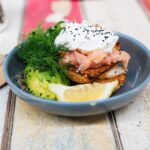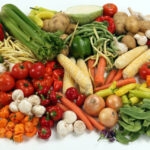Busting Food Myths with Nicole Senior
Myth: People with diabetes shouldn’t eat sugar
![[NICOLE]](https://glycemicindex.com/blog/2007/dec2007/nicole125.jpg)
Nicole Senior
Fact: People with diabetes can enjoy sugar in moderation as part of a healthy diet.
Do you believe that all chocolate and candy or lollies cause a rapid spike and then crash in blood glucose levels? You’re not alone. If you ask anyone walking down the street what they think a diet for people with diabetes should include, chances are the first thing they’ll say is ‘no sugar’. It’s one of the most pervasive and persistent myths about diet and health ever, I reckon. Yet it is a myth.
The downfall of the ‘no sugar’ dietary dogma started with the advent of the glycemic index (GI). The GI was the first means by which we could actually measure the effect of different foods on our blood glucose levels and it turned the nutrition world upside down. Before the GI we separated carbs into starches and sugars, and recommended ‘complex’ starchy foods over ‘simple’ sugary foods in the mistaken belief they would not raise your BGLs to the same degree. We were wrong. Measuring the GI of a variety of starchy and sugar foods turned the old advice on its head. We discovered most bread, potatoes and rice had a high GI, whereas table sugar and most honey had a moderate GI. Even more shocking was that sweet tasting foods such as (most) fruits, flavoured yoghurt and ice cream had a low GI! The shockwaves of this scientific development are still being felt. Even the terminology has changed. Using ‘complex and simple carbohydrates’ to describe speed of digestion is now defunct because we know many starches are very fast to digest and many sugars are slow.
The anti-sugar message has also soiled the reputation of all carbohydrates, promoting the use of low-carb diets. Besides the obvious nutritional problems of cutting out grains, fruits, dairy and starchy vegetables, new research suggests a ‘spoonful of sugar’ may actually be beneficial for the regeneration of insulin producing beta cells in the pancreas. A mouse study published in Cell Metabolism found the availability of glucose (from the digestion of carbohydrates) increased the speed at which these vital cells reproduce themselves, and may offer hope for people with diabetes whose beta cells have been destroyed or are in decline.
However, this doesn’t give a green light to people with diabetes to stuff themselves with sweets, but it does discredit the sugar veto. Today, the advice for people with diabetes is the same as for the general population: consume moderate amounts of sugars and foods containing added sugars. The caveat if you have diabetes being to spread your carbs evenly through the day, balance carb intake with medication and choose low GI carbs where possible. Sugar is NOT OK when eaten in large quantities and in less nutritious foods such as confectionery and soft drinks. But some sugar is OK when eaten in moderate amounts within healthy foods. For example, in low fat fruit yoghurt, custard or ice cream, or wholegrain or high fibre breakfast cereal – even a small piece of fruit cake or oat biscuit. There is no need to especially restrict the natural sugars found in fruit and dairy foods. There’s more to a diet for diabetes than the sugar content of foods and a little sugar might help make healthy foods more enjoyable and life a little sweeter.
For great recipes moderate in sugar and also good for your heart, check out Nicole’s books at www.eattobeatcholesterol.com.au HERE.







